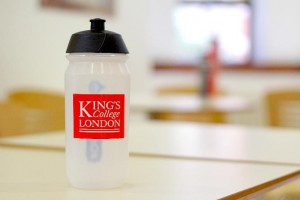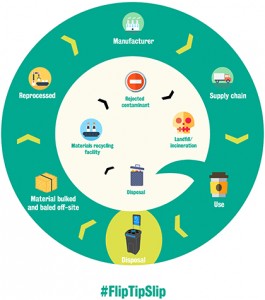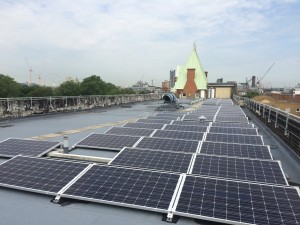The following guest blog comes courtesy of Sarah Bailey. Sarah is the Science Liaison, Public Engagement and Communications Manager for the Department of Twin Research as well as their Sustainability Champion.
For those in the know, July is all about plastic free living. The challenge to ditch plastic for a month, run by the Marine Conservation Society in the UK, has gathered momentum as awareness about plastic pollution has increased.
I attempted Plastic Free July in 2017 but failed miserably. I thought I’d got everything covered, until a friend pointed out on day two that, yes, my toothpaste, moisturiser and shampoo all count as single use plastics. And that was just the tip of a plastic-shaped iceberg.
A year later, I decided I was going to give it a proper attempt. Would I make it through the month? What problems would I encounter? Would I become so desperate for sticky toffee pudding and cream one hungry evening that I’d forsake all my hard work?
Since 2017 I’d already started using a few plastic free alternatives, so I didn’t think it would be too much effort to make the final changes needed. But, of course, things aren’t ever quite that straightforward.
Firstly, there’s the cost. Bulk buy items are more expensive than their plastic wrapped counterparts, so I didn’t immediately replace all my store cupboard items. Loose fruit and veg are also pricey, though I didn’t falter and reach for the plastic covered stuff. Plastic free toilet roll is extortionate, so much so I didn’t even consider buying it.
Some things are just hard to buy plastic free. Cheese is one example, and boy, do I love cheese. My local cheese shop did put my purchases in paper bags, but when it’s cut from a big block wrapped in cling film it seems to miss the point. Yoghurt is a tough one too, but you can easily make your own.
There were some unexpected twists, of course. My Lush deodorant left me with a painful rash after a week of use, sending me back to my regular plastic-covered brand, and getting to the bar at a busy pub after an evening at the cricket resulted in a pint in a plastic cup. Sigh.
Sarah’s plastic free swaps
It’s not all doom and gloom though; whilst many plastic free alternatives aren’t cheap, they do last a long time. My well-used first shampoo bar lasted six months, and my weird, grey, but utterly delicious Truthpaste will last me a while too.
There are also plenty of changes I’ve made very easily and will stick to. My shampoo bars, metal safety razor, ecoffee cup and shopping bags are all here to stay. Milk deliveries are oh-so-convenient, meaning I definitely won’t go back to plastic-covered milk.
I’ll keep shopping at my local fishmongers who give discounts for bringing your own containers, and I’ll even keep buying (some) bulk buy items from my nearest zero waste shop. Loose leaf tea from my local tea shop is also a winner; how I’ve missed using a teapot!
Living plastic free takes a lot of planning, at least at first. In our age of convenience, doing a weekly food shop is from a bygone age. There’s also a certain amount of willpower needed (Did I cave and buy sticky toffee pudding and cream one evening? Yes, yes I did), and the acceptance that for now, at least, plastic alternatives often cost more.
One thing’s for certain though; plastic pollution won’t go away with consumer action alone. I’ll keep doing what I can, and hopefully more people will too, but what’s urgently needed is action from legislators and manufacturers to remove single use, non-recyclable and non-biodegradable plastics from our shelves, for good.

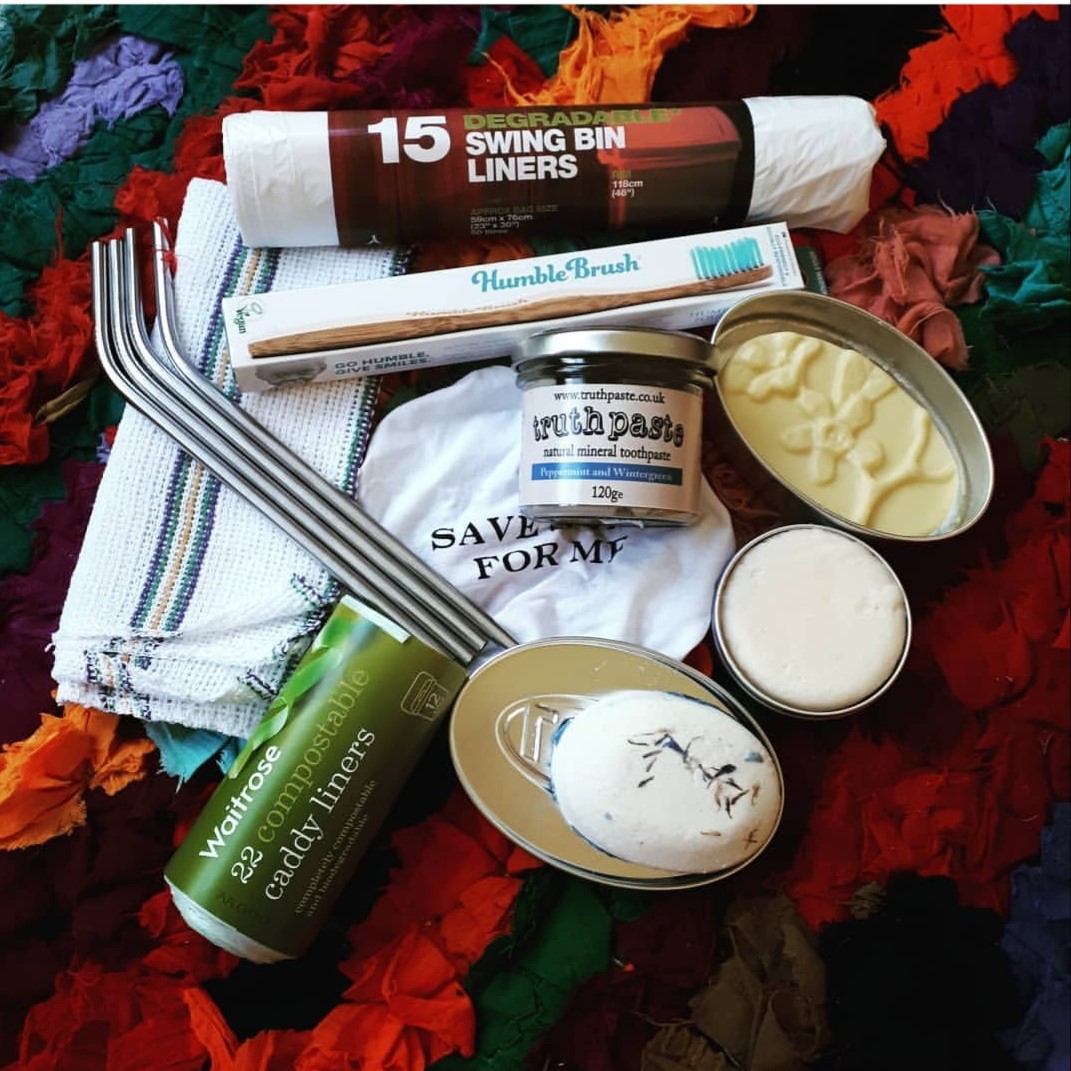

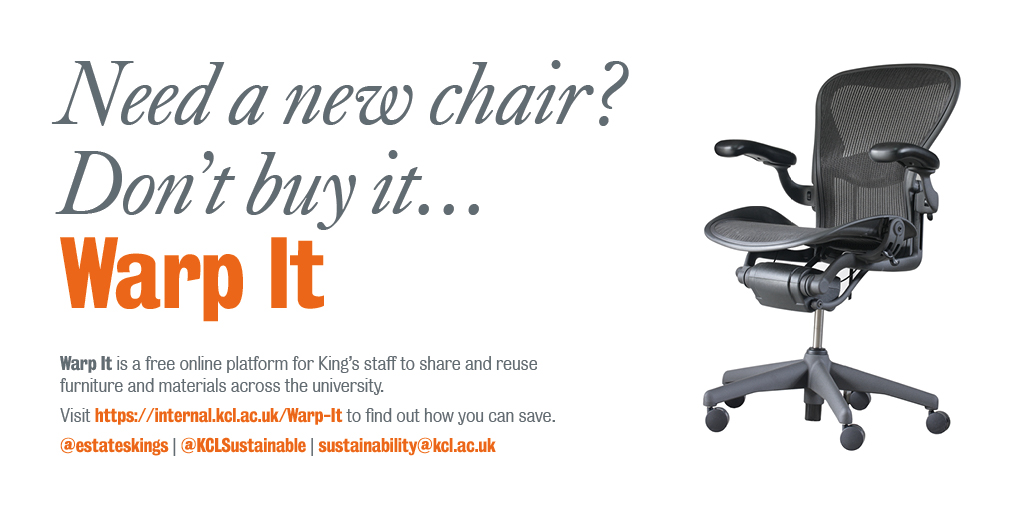




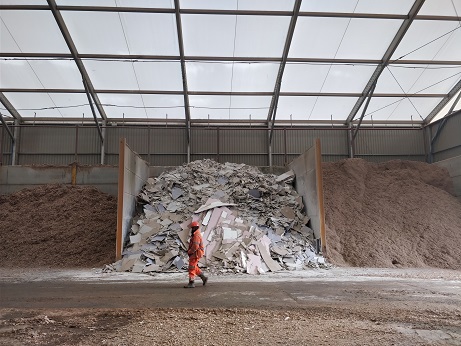
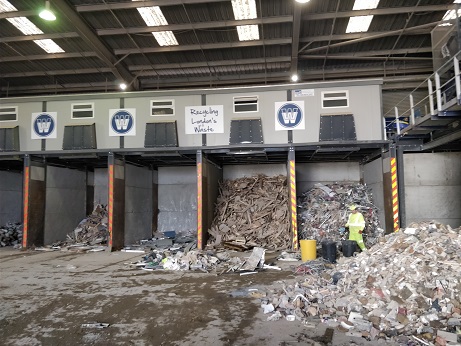
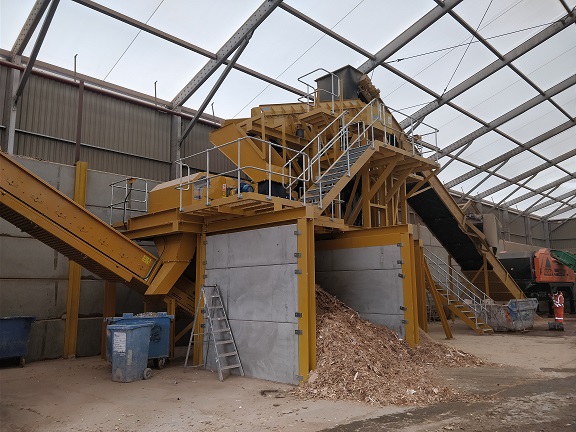

 After our visit to the clinical waste incinerator, we toured Grundon’s Energy from Waste plant. This is where general waste (e.g. the black bins at King’s, containing sweet wrappers, sandwich cartons, plastic film etc.) is processed. While general waste at King’s is collected by Simply Waste Solutions, not Grundon, the process is the same.
After our visit to the clinical waste incinerator, we toured Grundon’s Energy from Waste plant. This is where general waste (e.g. the black bins at King’s, containing sweet wrappers, sandwich cartons, plastic film etc.) is processed. While general waste at King’s is collected by Simply Waste Solutions, not Grundon, the process is the same.